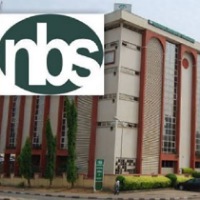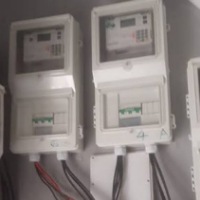Business
28 States Failed To Attract Foreign Investment In Q1 – NBS Report

According to recently released data on Foreign Direct Investment by the National Bureau of Statistics, 28 out of the 36 states in Nigeria, along with the Federal Capital Territory, experienced a lack of capital importation during the first quarter of 2023.
In contrast, only nine states managed to attract capital inflows during this period.
Lagos emerged as the most successful state in attracting investments, with a total of $704 million, Abuja received $410.27 million, and Akwa Ibom attracted $5.21 million.
Among the other states that witnessed capital inflows were Adamawa with $4.50 million, Anambra with $4 million, Ogun with $2.09 million, Niger with $1.50 million, Ondo with $0.20 million, and Ekiti with $0.01 million.
Overall, the cumulative capital inflows for the period reached $1.13 billion.
The report read, “By destination of investment, Lagos State remained the top destination in Q1, 2023 with $704.87m, accounting for 62.23 per cent of total capital investment in Nigeria. This was followed by Abuja, valued at $410.27m (36.22 per cent).”
According to the National Bureau of Statistics (NBS), there has been a significant 28 percent decline in total capital importation when comparing the first quarter of 2023 to the same period in 2022.
The report read, “Total capital importation into Nigeria in Q1, 2023 stood at $1.13bn, lower than $1.57bn recorded in Q1 2022, indicating a decrease of 28 per cent. When compared to the preceding quarter, capital importation rose by 6.78 per cent from $1.06bn in Q4 2022.”
It was also disclosed that the largest capital importation during the period was received from portfolio investment, which accounted for 57.32 per cent ($649.28m) of total capital imported in Q1 2023.
This was followed by other investment with 38.31 per cent ($435.76m) and Foreign Direct Investment with 4.20 per cent ($47.60m).
When examining the sectors, the banking sector attracted the highest inflow of capital, with $304.56 million, representing 26.89 percent of the total capital imported during Q1 2023.
The production sector followed closely with $256.12 million (22.61 percent), and IT services received $216.06 million (19.08 percent) in capital importation.
Additionally, it was revealed that the United Kingdom emerged as the largest source of capital importation during the first quarter of 2023.
The report added, “Capital importation by country of origin reveals that capital from the United Kingdom ranked top in Q1, 2023 with $673.64m, accounting for 59.47 per cent. This was followed by the United Arab Emirates and the United States valued at $108.28m (9.56 per cent) and $95.36m (8.42 per cent) respectively.”
It was also noted that “Categorisation of Capital importation by banks shows that Citibank Nigeria Limited ranked top in Q1, 2023 with $424.13m (37.45 per cent). This was followed by Standard Chartered Bank Nigeria Limited with $360.33m (31.81 per cent) and Stanbic IBTC Bank with $151.85 (13.41 per cent).”
Tosin Oshunkoya, the Co-Managing Partner and Chief Executive Officer of Comercio Partners Asset Management, has expressed concerns about the declining interest of foreign investors in the Nigerian economy.
Oshunkoya pointed out that the persistent rise in inflation rates in major developed economies has led to cautious policy measures such as interest rate hikes.
He said, “The ravaging trend of inflation across major developed economies has triggered hawkish policy responses such as interest rate hikes, which tend to spur capital repatriation from frontier economies such as Nigeria while discouraging foreign capital inflows into the local economy, particularly through foreign portfolio investments.’
Business
Naira Slumps 4.60% Against Dollar
In a sharp turn of events, the Nigerian Naira took a significant tumble on Tuesday, plunging to N1,416.57 against the US dollar at the official market.
This staggering drop of N62.36 from the previous trading day represents a 4.60 percent loss, sparking concerns among investors and analysts alike.
Data from the FMDQ Exchange, overseeing the Nigerian Autonomous Foreign Exchange Market (NAFEM), revealed this unsettling trend.
Despite the currency’s downward spiral, trading activity surged, with the daily turnover soaring to $160.77 million, compared to Monday’s $84.83 million.
Meanwhile, at the Investor’s and Exporter’s (I&E) window, the Naira’s performance remained volatile, trading between N1,445 and N1,301 against the dollar, underscoring the currency’s precarious position in the market.
Business
Dangote Restates Commitment To Host Communities’ Capacity Building

The management of Dangote Cement Plc., Ibese Plant has assured that it would continue to complement the efforts of the Ogun State Government in the development of its host communities through capacity building for the people, especially the youths.
In a statement, the company declared its commitment to development for the prosperity of the people and host communities for which it is placing a premium on the developmental needs of the communities and empowerment of their indigenes.
During a capacity development workshop for Host Community Representatives, General Manager, Human Asset Management/Admin, Aina Olugbenga, said, Dangote Cement remained committed to implementing value-adding empowerment programs to uplift the people and develop the host communities.
The workshop themed: “Team Building, Inclusivity and Stewardship, a panacea to effective Community Representatives” according to him, was to equip the Community reps with the right skills to offer quality representation for their people. He stated: this capacity building workshop is aimed at developing and strengthening the skills, instincts, and abilities of the communities through their representatives adapt and thrive in a fast-changing world.
Olugbenga noted that the workshop is part of the management’s strategy to improve relationships with the host communities and urged the participants to leverage the knowledge acquired from the workshop to improve service delivery to their people and the Cement plant.
According to him, Dangote Cement, Ibese Plant is committed to building the capacity of the people and institutions in the communities by identifying skill gaps and partnering to up their skills for economic prosperity. This, he stated, was in anticipation that other stakeholders will continue to play their part by partnering and supporting the Company to ensure peaceful co-existence and shared prosperity for all.
Said he, “Apart from reciprocating the good gesture of Dangote Cement by ensuring peace at all times and keeping an open and trusting mind towards the organization, we also desire from our community leaders and representatives who are present here, the ownership of all Social Investment programme, be it training or infrastructure because they are meant for the betterment of our people.”
On behalf of the Community Representatives, Hon. Dayo Ogunyinka thanked the Dangote Cement management for the workshop while assuring continued commitment to effective, efficient and selfless discharge of their roles and responsibilities to their various communities and the Plant.
Business
JUST IN: NDIC Boosts Deposit Insurance For Banks
The Nigeria Deposit Insurance Corporation (NDIC) has announced revisions to the Maximum Deposit Insurance Coverage for banks operating within the country.
NDIC’s Managing Director, Bello Hassan, disclosed the updated coverage benchmarks during a media briefing in Abuja on Thursday.
The coverage for Deposit Money Banks has been increased from N500,000 to N5 million, for Microfinance Banks from N200,000 to N2 million, for Primary Mortgage Banks from N500,000 to N2 million, and for Mobile Money Operators subscribers’ pass-through from N500,000 to N5 million per subscriber.
Hassan underscored that the objective of the update is to enhance depositor safety, foster public trust, promote the inclusivity of financial services, and ensure the overall stability of the financial sector.
More to follow.. . .. .



















